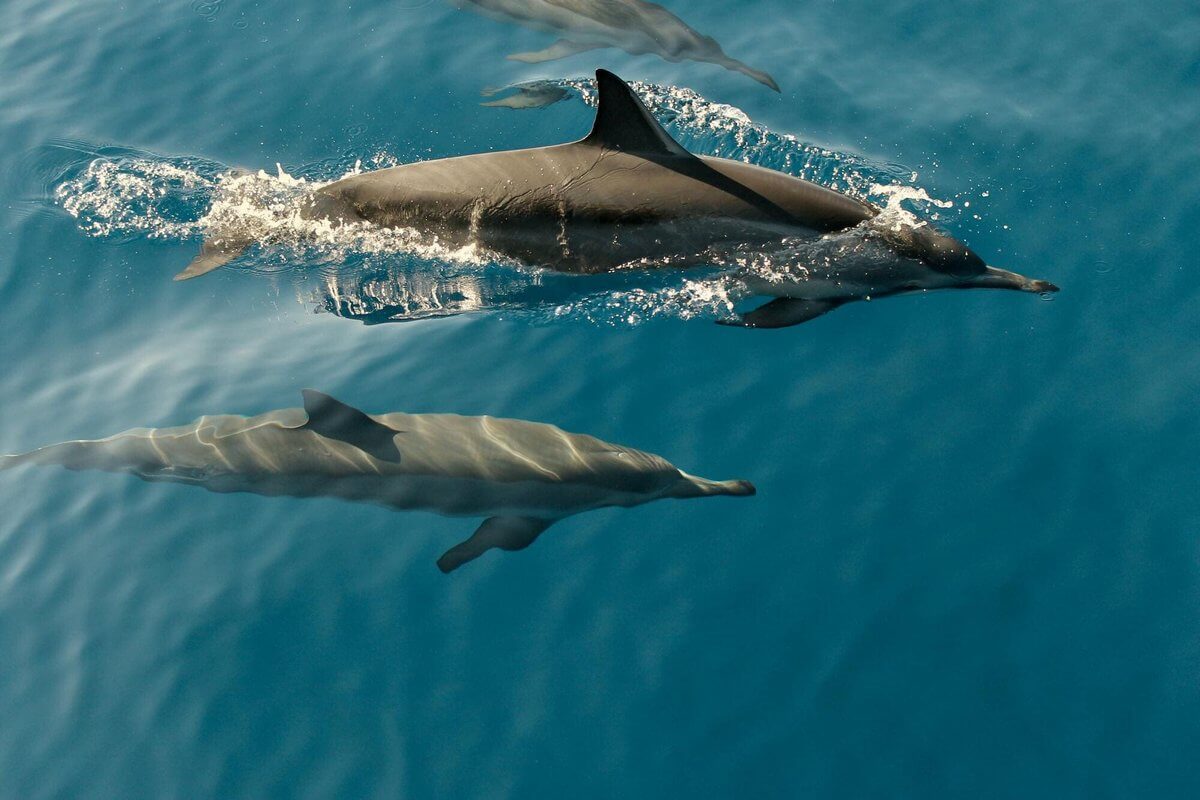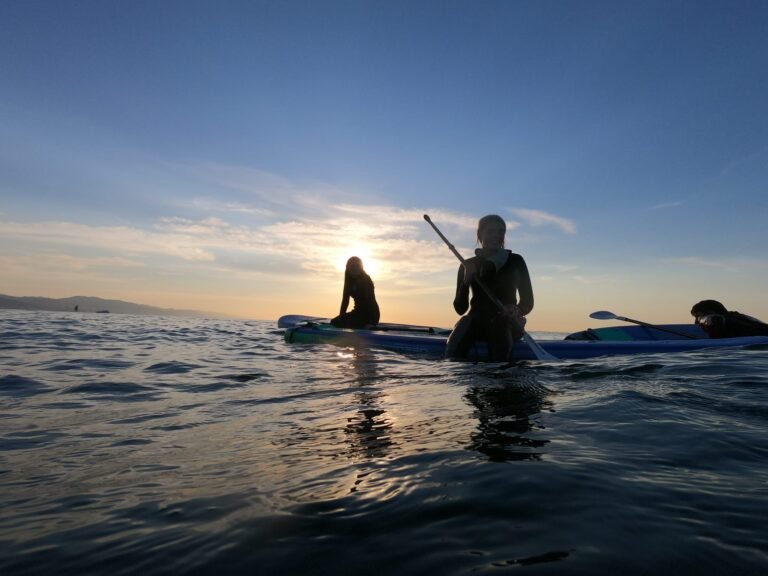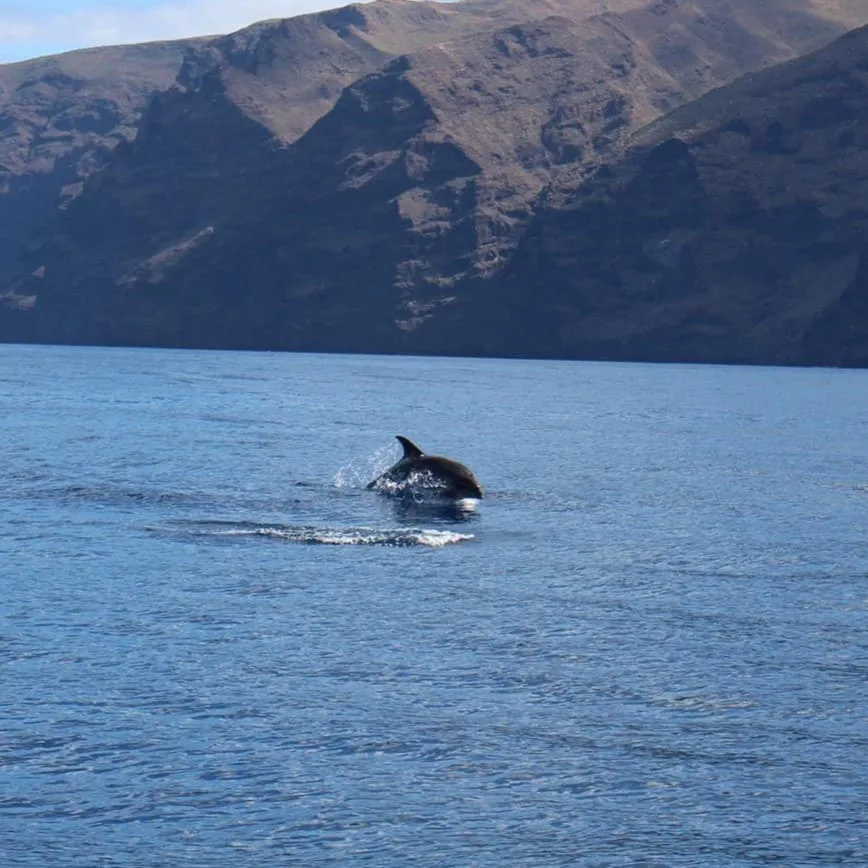Currently, whales and dolphins face several threats in this area, including the omnipresence of commercial fishing vessels, intensive fishing, and water pollution, highlighting the development of sustainable tourism in Spain. The consequences of the overexploitation of marine areas are numerous: increasing injuries to fish and marine mammals, deterioration of their health, and destruction of their natural habitat, making sustainable tourism essential.
There are still several cetaceans that reside and reproduce in the region, and protecting these magnificent creatures is our goal. Volunteers committed to ensuring the protection of endangered cetacean species will be integrated into our teams and actively participate in the mission. The data you collect will contribute to the long-term management of the area and help highlight marine conservation in the region.
If you are passionate about marine life and want to contribute to the work of protecting Tenerife’s marine ecosystem, then this project is for you.
– Contribute to the conservation of vulnerable whale and dolphin species in Europe.
– Participate in coastal expeditions to search for dolphins and monitor maritime traffic.
– Update the cetacean and marine wildlife identification catalogue.
– Raise awareness in local communities about protecting Tenerife’s environment.
– Gain hands-on experience in marine conservation.
– Discover the island of Tenerife and its natural treasures.
– Work in a team with skilled and experienced researchers.
After completing the initial training, volunteers will take part in three main activities during their eco-volunteering mission in Tenerife:
1. Cetacean studies aboard observation boats, where volunteers will collect data and photographs of local cetacean populations. The data gathered includes the health and number of species observed, interactions with other vessels and animals, behaviors, and habitat conditions. This data is then entered into a database that consolidates extensive information on Tenerife’s cetaceans.
2. Raising community awareness about the protection of cetaceans in Tenerife and worldwide as part of sustainable tourism in Spain. The NGO collaborates with local researchers to inform and raise awareness about the issues threatening whales and dolphins in Tenerife. Awareness efforts target the island’s residents as well as the local tourism sector to minimize tourism’s impact on wildlife and to promote ethical tourism in the region. One of the volunteers’ tasks will involve cleaning the beaches in southern Tenerife, in collaboration with other volunteer or tourist organizations. This is an excellent opportunity to make a positive impact on the environment, as fishing nets and waste pose a critical threat to marine life in this biodiverse area.
3. Volunteers will also participate in coastal surveys in the region to monitor boat and vessel traffic, assess the number and behavior of cetaceans, analyze weather and environmental conditions and their impacts, observe cetacean dependence on fish farms, and study interactions between vessels and wildlife. This data helps create a comprehensive picture of the whale and dolphin populations in Tenerife and the impact of tourism on these species.
The frequency of these activities depends on the season and the number of volunteers, but everyone will have the opportunity to engage in these activities that contribute to developing an environment respectful of whales and dolphins in Tenerife.
Our partner NGO in sustainable tourism in Spain works hand in hand with ethical local organizations that share the same values of environmental respect. These activities contribute to increasing Tenerife’s knowledge about whale and dolphin populations, educating tourists and industry members, and furthering conservation efforts on the island.

Departures 2025 :
Duration during the week | Budget total mission |
|---|---|
2 weeks | 3395 € |


Participants sleep in dormitories accommodating 4 to 6 people. Bathrooms with showers and flush toilets are shared. The accommodations are equipped with electricity and running water.
Regarding meals, tasks are shared between staff and volunteers. Meals are generally simple yet healthy, combining the flavors of Canary Island ingredients. Breakfasts may include cereals, eggs, toast, pancakes, and fresh fruits. Depending on participants’ preferences, lunch and dinner options vary, but favorites include curries, pasta, salads, and stir-fries. Participants can also purchase their own snacks in town.
WiFi is available at the project site, along with good phone reception. There are also cafes in town offering free WiFi.
You will be welcomed by a team member upon arrival at the airport and transferred to the project location. Transportation to the work site is provided unless the site is within walking distance.
During weekends, volunteers can explore the surroundings on foot, by bus, or by taxi.
Tenerife enjoys a pleasant climate, with average temperatures ranging from 18 to 24 degrees during December, January, and February, and between 24 and 28 degrees during June, July, and August.
– From 15 years old.
– Intermediate/advanced English level (understand instructions, communicate effectively).
– Copy of passport.


| | Merci pour votre abonnement |
